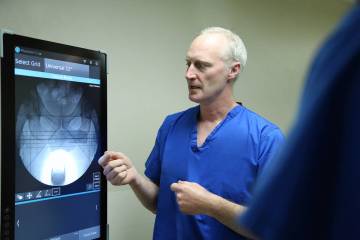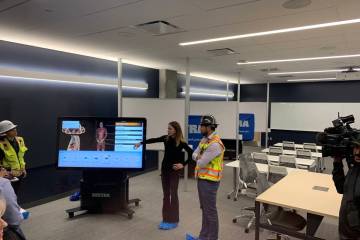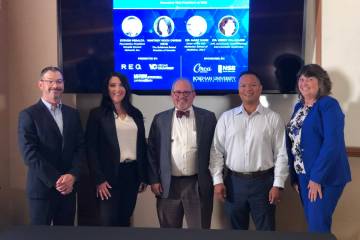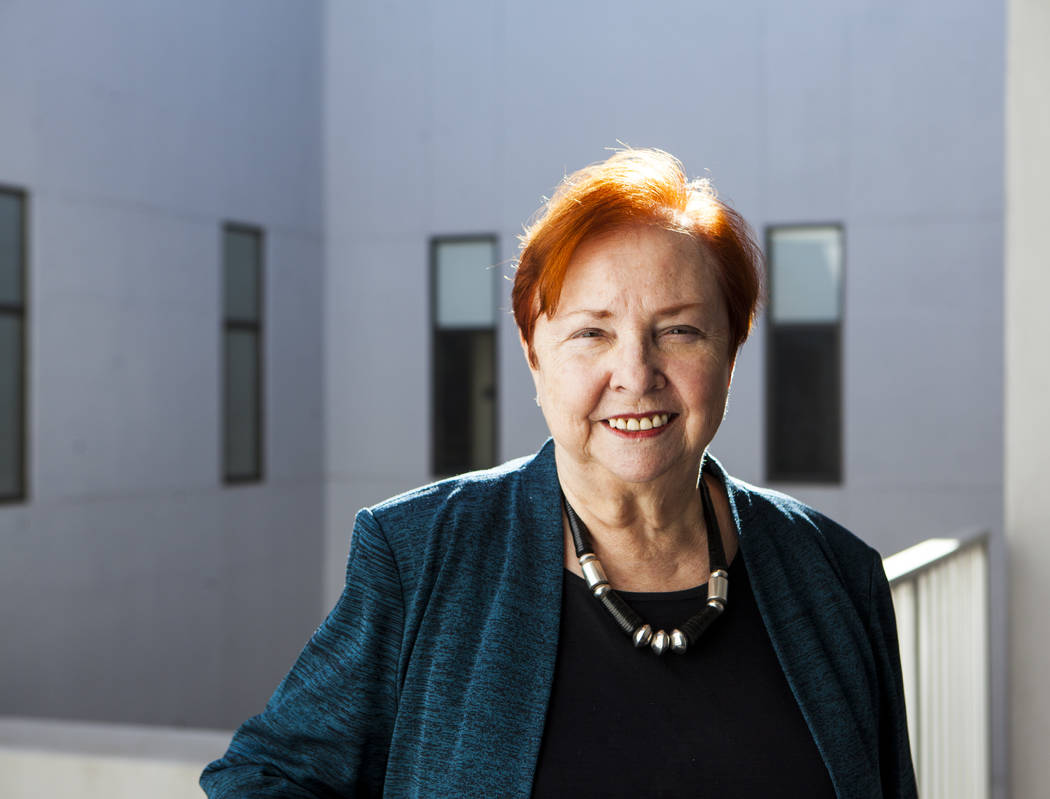
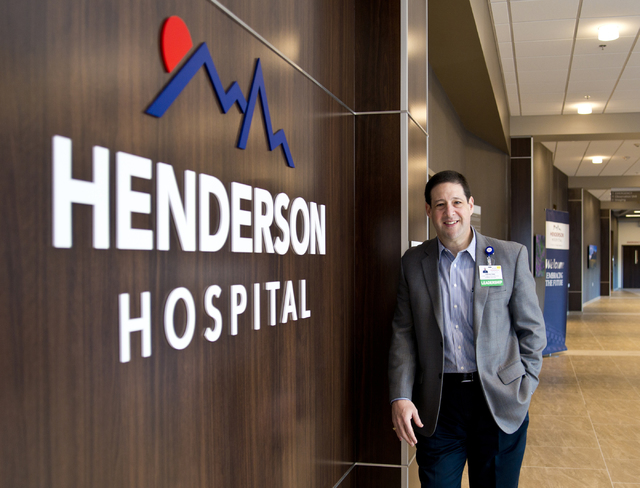
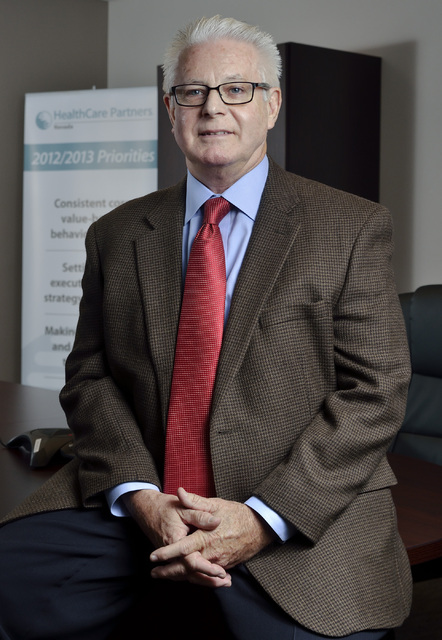
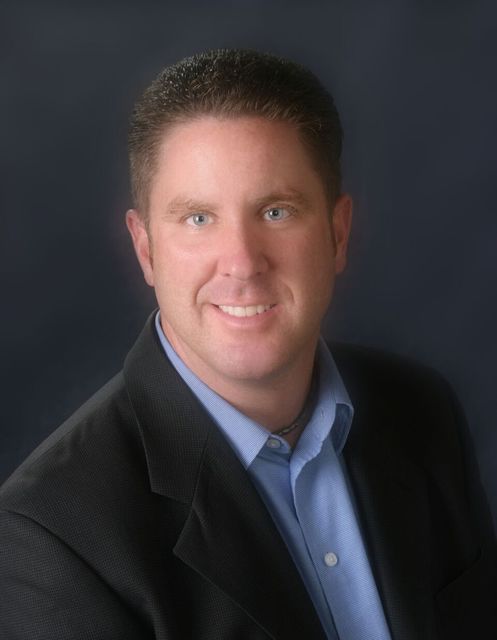
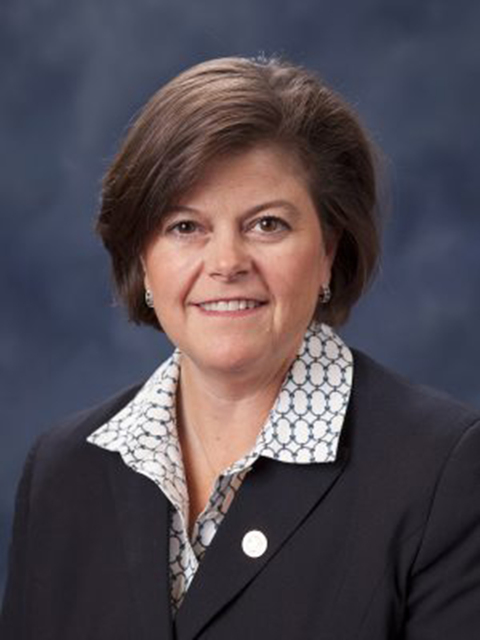
While the Southern Nevada health care community is excited about the July opening of the UNLV School of Medicine, many are concerned about the challenges faced by the potential repeal of the Affordable Care Act along with the ability to keep and lure physicians to the state.
During three separate conferences on the future of medicine held in May, the prospect of an Obamacare repeal was a topic of conversation and concern. Health care leaders also raised concerns about the state’s Medicaid reimbursement rate being uncompetitive, and the need for more residency-training programs to keep doctors from leaving the state.
On May 24, the Congressional Budget Office released its score on the American Health Care Act projecting that 23 million more Americans would be uninsured by 2026. Those older and less healthy would face “extremely high premiums,” and out-of-pocket costs would increase, the report said. At the same time, it would cut the federal deficit by $119 billion.
“Another thing that’s going to be devastating to this state is the proposal by President Trump to cut $800 billion out of Medicaid, and that goes through,” said Shelley Berkley, Touro University Nevada’s CEO and senior provost and former Democratic member of Congress. “I sincerely doubt it will. It would be devastating for the state of Nevada because that’s how poor people get their services.”
Berkley, who appeared on a health care panel May 24 at the LV Perspective conference at the Four Seasons, said if people don’t have health insurance, that doesn’t mean they won’t get sick. They eventually end up in the emergency room for the most expensive treatment.
“There’s a reason UMC is no longer having $17 million a year in deficits,” Berkley said. “That’s because Obamacare expanded Medicaid, and Gov. (Brian) Sandoval agreed that the state should expand Medicaid. If the reimbursement from the feds gets lower and lower, the cost to the taxpayers of the state of Nevada is going to rise and rise. It could be a big budget buster. They will have to make up for the shortfall and UNLV Medical School and so many programs we expect from our government are going to be cut because this a low-tax state and our fellow citizens don’t want their taxes increased.”
Sam Kaufman, CEO of Henderson Hospital who spoke to a Henderson Chamber of Commerce luncheon May 23 at Fiesta Henderson.
He said the House bill that’s under consideration in the Senate will change drastically and look nothing like its current form. There’s going to be a lot of horse trading during the next several months as the Senate takes up the bill, he said.
“Of course, our biggest concern is access,” Kaufman said. “We have a population that was historically not insured and now that population is insured with a Medicaid rate. There’s 9 to 10 percent of the population without insurance, and that number used to be 18, 19, to 20 percent. That will be a problem not only for Henderson Hospital but health care in general in this country.”
Bard Coats, market president for HealthCare Partners, which manages and operates medical groups in Nevada and across the country, spoke to the CCIM’s Southern Nevada chapter, a real estate group, May 24 at the Palms.
He said there’s been a six-year experiment with the Affordable Care Act to provide funding for people through Medicaid expansion and buying private insurance through exchanges with subsidies that are now in jeopardy.
People who hadn’t gotten health care in years because they couldn’t afford it have gotten it under the Affordable Care Act, he said.
For hospitals today who once had 18 percent to 20 percent unpaid admissions, it’s down to 6 percent to 8 percent, he said.
“The effect in the health care system was phenomenal,” Bard said. “You can have the conversation of the expense of these things and who’s paying for it. But when looking at exchanges and subsidies six years into it, and looking to dissemble it by another way to provide health care is a tremendously disruptive problem for those of us in health care.”
It’s hard to predict what will happen, said Bard, who added that was the fourth panel he’s been on this year.
Every time his answer is different of what will and what won’t be replaced. That uncertainty is a problem that’s caused some insurers, although not in Nevada, to pull out of the exchanges, he said.
Not only did the Affordable Care Act provide medical care, it protected people from bankruptcy, Bard said. Not everyone will be able to afford changes in the health care system, he said.
“They can’t buy a high-deductible plan and spend $5,000 out-of-pocket, which is what some people want as an answer to repealing the Affordable Care Act,” Bard said. “There are so many parts of (the Affordable Care Act) that work well. Some states have no trouble with the exchanges, and they work wonderfully. Others, depending on how things work, have had problems.”
Barbara Atkinson, dean of the UNLV School of Medicine who appeared at LV Perspective and the CCIM event, told the real estate executives that she came to Nevada from Kansas, which didn’t accept Medicaid funds from the federal government under the Affordable Care Act. Hospitals have been closing throughout Kansas, especially in rural areas because they can’t function when not enough patients have insurance, she said.
More than 300,000 were added to the rolls and about 650,000 people are on Medicaid in Nevada today. The rolls could be cut by at least 150,000 if changes are made, she said.
“It would be devastating to the hospitals here and as a provider of care to the doctors as well,” Atkinson said. “It’s the lowest kind of payment but it’s a payment.”
That Nevada has one of the worst Medicaid reimbursement rates in the nation didn’t escape scrutiny during the panels. Some doctors will see increases under the proposed state budget, but physicians said the reimbursements will be mostly flat.
Doug Geinzer, CEO of Las Vegas Heals, an organization of more than 600 health care professionals, said the Medicaid reimbursement rate is important for workforce development, recruitment and retention. Some 70 percent of medical school graduates who do their residency in a city stay there to practice, he said.
“We need to focus on retention programs,” said Geinzer who appeared at the real estate and LV Perspective event. “The residency programs get them here but what keeps doctors here is their pay. Their pay is directly tied to reimbursement rates. If we’re not reimbursing them adequately, all of this infrastructure that we have building over the last five years is for nothing. We have to get this part of the equation right.”
Geinzer said physicians have a choice because there is demand everywhere. When they can go to a neighboring state and earn 40 percent more and see less patients, Nevada is going to have a problem tackling its physician shortage problem.
“In order for Nevada to have a competitive advantage, we must address reimbursement rates,” Geinzer said. “If we don’t get that right, we will have serious challenges.”
Sandoval’s budget put in place $10 million to add residency programs in 2015 and has proposed another $10 million this time around. Panels want more funding to start residencies to add more specialties and retain more medical graduates and lure people to train here.
Las Vegas City Manager Betsy Fretwell said Nevada needs many medical specialties funded, additional funding for the UNLV medical school and higher Medicaid reimbursement rates.
“We need them all,” Fretwell said during the LV Perspective event. “Let’s get this all done so people quit getting on the airplane to go get their care. That should not be OK for us in this city anymore.”


